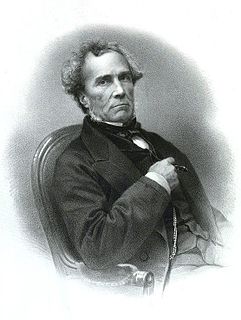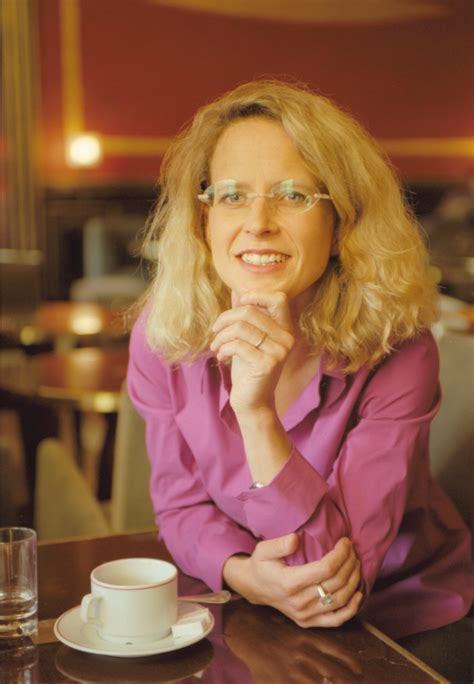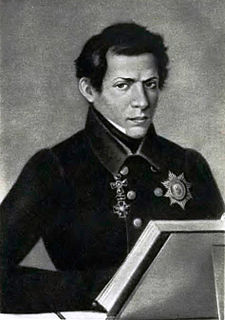Top 545 Not Belonging Quotes & Sayings - Page 9
Explore popular Not Belonging quotes.
Last updated on November 18, 2024.
Jesus says. "Acknowledge and accept who I want to be for you: a Savior of boundless compassion, infinite patience, unbearable forgiveness, and love that keeps no score of wrongs. Quit projecting onto Me your own feelings about yourself. At this moment your life is a bruised reed and I will not crush it, a smoldering wick and I will not quench it. You are in a safe place." Brennan Manning. Abba's Child: The Cry of the Heart for Intimate Belonging
I am an adherent of the ideal of democracy, although I well know the weaknesses of the democratic form of government. Social equality and economic protection of the individual appeared to me always as the important communal aims of the state. Although I am a typical loner in daily life, my consciousness of belonging to the invisible community of those who strive for truth, beauty, and justice has preserved me from feeling isolated.
It is intended to signify a coordinated plan of different actions aiming at the destruction of essential foundations of the life of national groups, with the aim of annihilating the groups themselves. The objectives of such a plan would be the disintegration of the political and social institutions, of culture, language, national feelings, religion, and the economic existence of national groups, and the destruction of the personal security, liberty, health, dignity, and even the lives of the individuals belonging to such groups.
What is of the nature of spirit and soul must be gleaned from facts belonging to the spirit and soul; we shall then know that in the living thinking which is liberated from the will, a life-germ has been discerned which passes through the gate of death, goes through the spiritual world after death, and afterwards returns again to earthly life.
I certainly felt I had an idea of World War II, and it's probably the idea that many people share: there was this insane aggressor, and there was really only one way to proceed in resisting him. What I didn't realize is that there were many voices belonging to reasonable, interesting, complicated people who had a different way of interpreting the possible responses to the Hitlerian menace.
Some say they are not bound by the doctrine which teaches that the Mystical Body of Christ and the Roman Catholic Church are one and the same thing. Some reduce to a meaningless formula the necessity of belonging to the true Church in order to gain eternal salvation. Others finally belittle the reasonable character of the credibility of Christian Faith. These and like errors, it is clear, have crept in among certain of our sons who are deceived by imprudent zeal for souls or by false science.
We have become this very fear-based culture, especially post-9/11. Fear is the opposite of love, in my opinion. I think there would be more love in the world. I'm not talking about rainbows and unicorns and '70s Coca-Cola commercials. I'm talking about gritty, dangerous, wild-eyed love. Radical acceptance of people. Belonging. A good, goofy kind of love.
There is a certain period of the soul-culture when it begins to interfere with some of characters of typical beauty belonging to the bodily frame, the stirring of the intellect wearing down the flesh, and the moral enthusiasm burning its way out to heaven, through the emaciation of the earthen vessel; and there is, in this indication of subduing the mortal by the immortal part, an ideal glory of perhaps a purer and higher range than that of the more perfect material form. We conceive, I think, more nobly of the weak presence of Paul than of, the fair and ruddy countenance of David.
Our stories are not meant for everyone. Hearing them is a privilege, and we should always ask ourselves this before we share: "Who has earned the right to hear my story?" If we have one or two people in our lives who can sit with us and hold space for our shame stories, and love us for our strengths and struggles, we are incredibly lucky. If we have a friend, or small group of friends, or family who embraces our imperfections, vulnerabilities, and power, and fills us with a sense of belonging, we are incredibly lucky.
In the wake of 9/11, my meetings with Arab and Pakistani Americans, for example, have a more urgent quality, for the stories of detentions and FBI questioning and hard stares from neighbors have shaken their sense of security and belonging. They have been reminded that the history of immigration in this country has a dark underbelly; they need specific reassurances that their citizenship really means something, that America has learned the right lessons from the Japanese internments during World War II, and that I will stand with them should the political winds shift in an ugly direction.
Wholehearted living is about engaging in our lives from a place of
worthiness. It means cultivating the courage, compassion, and connection
to wake up in the morning and think, No matter what gets done and
how much is left undone, I am enough. It’s going to bed at night thinking,
Yes, I am imperfect and vulnerable and sometimes afraid, but that doesn’t
change the truth that I am also brave and worthy of love and belonging.
I am not ashamed to use the word class. I will also plead guilty to another charge. The charge is that people belonging to my class think they're better than other people. You're damn right we're better. We're better because we do not shirk our obligations either to ourselves or to others. . . .we live by our lights, we die by our lights, and whoever the high gods may be, we'll look them in the eye without apology.
Everyone should avoid familiarity or friendship with anyone suspected of belonging to masonry or to affiliated groups. Know them by their fruits and avoid them. Every familiarity should be avoided, not only with those impious libertines who openly promote the character of the sect, but also with those who hide under the mask of universal tolerance, respect for all religions, and the craving to reconcile the maxims of the Gospel with those of the revolution. These men seek to reconcile Christ and Belial, the Church of God and the state without God.
Perhaps we can only truly serve those we are willing to touch, not only with our hands but with our hearts and even our souls. Professionalism has embedded in service a sense of difference, a certain distance. But on the deepest level, service is an experience of belonging, an experience of connection to others and to the word around us. It is this connection that gives us the power to bless the life in others. Without it, the life in them would not respond to us.
Each man is contained and constrained, on entering social life, to fit his own life in, just as he fits his words and thoughts into a language that was formed without and before him and which is impervious to his power. Entering the game, as it were, whether of belonging to a nation or of using a language, a man enters arrangements which it does not fall to him to determine, but only to learn and respect the rules.
My friends don't understand, whether it's belonging to a country club or playing golf, or whatever a vacation is, that should make you happy. And it's like, "No, happiness is much deeper." I think people have to struggle to find things that give them purpose, the real meaning. Why am I alive? Why did God bless me with these skills or these resources? What am I to do with them? If God just lets some person be very fortunate, let's say financially, it's kind of a funny God.
Whatever plane our consciousness may be acting in, both we and the things belonging to that plane are, for the time being, our only realities. As we rise in the scale of development we perceive that during the stages through which we have passed we mistook shadows for realities, and the upward progress of the Ego is a series of progressive awakenings, each advance bringing with it the idea that now, at last, we have reached "reality"; but only when we shall have reached the absolute Consciousness, and blended our own with it, shall we be free from the delusions produced by Maya [illusion].
In some ways, the great danger for this commodified universe is our boredom with it ... There is this sort of dialectic that you could tease out, that even in this overdeveloped late-capitalist world, that boredom was still this kind of critical energy that you could work on and try to theorize and then act on, to find other kinds of belonging, other kinds of desire, other kinds of life.
I say the elite looks out of touch because it's kind of saying; look we'll manage all this for you. You know, we know best. We'll sort it all out for you. And then because people believe that doesn't meet their case for change and they want real change, social media and the way the relationship between people can come into a sense of belonging very quickly, that then is itself a revolutionary phenomenon. You see this around the world.
I sip my coffee. I look at the mountain, which is still doing its tricks, as you look at a still-beautiful face belonging to a person who was once your lover in another country years ago: with fond nostalgia, and recognition, but no real feelings save a secret astonishment that you are now strangers. Thanks. For the memories. It is ironic that the one thing that all religions recognize as separating us from our creator--our very self-consciousness--is also the one thing that divides us from our fellow creatures. It was a bitter birthday present from evolution, cutting us off at both ends.
So long as the law considers all these human beings, with beating hearts and living affections, only as so many things belonging to the master - so long as the failure, or misfortune, or imprudence, or death of the kindest owner, may cause them any day to exchange a life of kind protection and indulgence for one of hopeless misery and toil - so long it is impossible to make anything beautiful or desirable in the best-regulated administration of slavery.
It's funny," she said, with a strange hitch in her voice, "but I never wanted to be tied to anyone. Never wanted to be owned or to belong to another person. But now I realize that belonging with someone is completely different. I belong with you, Con." "And I with you." He kissed her, sealing them together with a bond she didn't mind, and one that would never be broken.
The power of perpetuating our property in our families is one of the most valuable and interesting circumstances belonging to it, and that which tends most to the perpetuation of society itself. It makes our weakness subservient to our virtue; it grafts benevolence even upon avarice. The possession of family wealth and of the distinction which attends hereditary possessions (as most concerned in it,) are the natural securities for this transmission.
Rumors and reports of man's relation with animals are the world's oldest news stories, headlined in the stars of the zodiac, posted on the walls of prehistoric caves, inscribed in the languages of Egyptian myth, Greek philosophy, Hindu religion, Christian art, our own DNA. Belonging within the circle of mankind's intimate acquaintance ... constant albeit speechless companions, they supplied energies fit to be harnessed or roasted.
I always wanted to be a scientist. I don't really have any writer friends. The process of being a writer is much more interior than being a scientist, because science is so reactionary. I think that all research scientists think of themselves as belonging to a grand tradition, building on work that has been worked on since the very beginning of science itself. Whereas I'm not sure writers think of themselves in the same way.
Conservation is getting nowhere because it is incompatible with our Abrahamic concept of land. We abuse land because we regard it as a commodity belonging to us. When we see land as a community to which we belong, we may begin to use it with love and respect. There is no other way for land to survive the impact of mechanized man, nor for us to reap from it the aesthetic harvest it is capable, under science, of contributing to culture
Now, I confess myself as belonging to that class in the country who contemplate slavery as a moral, social and political evil, having due regard for its actual existence amongst us and the difficulties of getting rid of it in any satisfactory way, and to all the constitutional obligations which have been thrown about it; but, nevertheless, desire a policy that looks to the prevention of it as a wrong, and looks hopefully to the time when as a wrong it may come to an end.
[Michael] Chabon, who is himself a brash and playful and ebullient genre-bender, writes about how our idea of what constitutes literary fiction is a very narrow idea that, world-historically, evolved over the last sixty or seventy years or so - that until the rise of that kind of third-person-limited, middle-aged-white-guy-experiencing-enlightenment story as in some way the epitome of literary fiction - before that all kinds of crazy things that we would now define as belonging to genre were part of the literary canon.
A lack of affiliation may mean a lack of accountability, and forming a sense of commitment can be hard without a sense of community. Displacement can encourage the wrong kinds of distance, and if the nationalism we see sparking up around the globe arises from too narrow and fixed a sense of loyalty, the internationalism that's coming to birth may reflect too roaming and undefined a sense of belonging.
There are things about the South - the politics, the classism, the racism - that I hate, and I want to be here to fight those things. I don't want to be in California or Michigan just complaining about them. I'm here trying to make a difference in the way I can, writing about it. And I want younger people, especially kids from my community, to see that being successful doesn't have to mean leaving a place like this. You don't have to trade in your family or your sense of belonging for that.
Finn always called it Enna's Stream. He tended to refer to most anything as belonging to her--Enna's Meadow, Enna's Mountain. When he referred to Yasid as Enna's Kingdom, she said, "Isn't that your heart?" Finn smiled and kissed her hand. Isi rolled her eyes. "Oh you two are impossible." Enna laughed. "This coming from the girl who calls her husband 'sweet little bunny boy'?" Isi blushed. "That was just once.
If you're writing a book where you want to make a positive truth claim, then you should absolutely call it nonfiction or memoir. If you don't want to make that claim - if that's not what's important to you; if you're more interested in storytelling and interiority and interpersonal relationships than in objective, checkable facts about the world - then why wouldn't you call it a novel, and take advantage of what that gets you, of the extra freedom, of belonging to the tradition of the novel?
So multifarious are the different classes of truths, and so multitudinous the truths in each class, that it may be undoubtingly affirmed that no man has yet lived who could so much as name all the different classes and subdivisions of truths, and far less anyone who was acquainted with all the truths belonging to any one class. What wonderful extent, what amazing variety, what collective magnificence! And if such be the number of truths pertaining to this tiny ball of earth, how must it be in the incomprehensible immensity!
But the fact is that when wine is taken in moderation, it gives rise to a large amount of breath, whose character is balanced, and whose luminosity is strong and brilliant. Hence wine disposes greatly to gladness, and the person is subject to quite trivial exciting agents. The breath now takes up the impression of agents belonging to the present time more easily than it does those which relate to the future; it responds to agents conducive to delight rather than those conducive to a sense of beauty.
I have received your letter of the 6th, with the eloquent discourse delivered at the consecration of the Jewish Synagogue. Having ever regarded the freedom of religious opinions and worship as equally belonging to every sect, and the secure enjoyment of it as the best human provision for bringing all either into the same way of thinking, or into that mutual charity which is the only substitute, I observe with pleasure the view you give of the spirit in which your sect partake of the blessings offered by our Government and laws.
Such then in number and importance are the precious ties belonging to the Christian name which keep a believer in the Catholic Church, as it is right they should ... With you, where there is none of these things to attract or keep me... No one shall move me from the faith which binds my mind with ties so many and so strong to the Christian religion... For my part, I should not believe the gospel except as moved by the authority of the Catholic Church.
Offerings to propitiate the dead then were regarded as belonging to the class of funeral sacrifices, and these are idolatry. Idolatry, in fact, is a sort of homage to the departed, the one as well as the other is a service to dead men. Moreover, demons dwell in the images of the dead. ... this sort of exhibition has passed from honors of the dead to honors of the living; I mean, to quaestorships [financial overseers]and magistractes, to priestly offices of different kinds. Yet, since idolatry still cleaves to the dignity's name, whatever is done in its name partakes of its impurity.
The experiments made on the mutual electrical relations of bodies have taught us that they can be divided into two classes: electropositive and electronegative. The simple bodies which belong to the first class, as well as their oxides, always take up positive electricity when they meet simple bodies or oxides belonging to the second class; and the oxides of the first class always behave with the oxides of the other like salifiable bases with acids.
It would seem as if the rulers of our time sought only to use men in order to make things great; I wish that they would try a little more to make great men; that they would set less value on the work and more upon the workman; that they would never forget that a nation cannot long remain strong when every man belonging to it is individually weak; and that no form or combination of social polity has yet been devised to make an energetic people out of a community of pusillanimous and enfeebled citizens.
Pathology has made us acquainted with a great number of states in which the boundary lines between the ego and the external world become uncertain or in which they are actually drawn incorrectly. There are cases in which parts of a person's own body, even portions of his own mental life - his perceptions, thoughts and feelings -, appear alien to him and as not belonging to his ego; there are other cases in which he ascribes to the external world things that clearly originate in his own ego and that ought to be acknowledged by it.
I'm still a researcher. The best way to explain it is that I trusted myself deeply as a professional, but I did not have a lot of self-trust personally. When I started learning all of these things about the value and the importance of belonging, vulnerability, connection, self-kindness and self-compassion, I trusted what I was learning - again, I know I'm a good researcher. When those things and wholeheartedness started to emerge with all these different properties, I knew I had to listen. I'd heard these messages before personally but I didn't trust myself there.
There are constraints on what counts as "Reformed." It's more than a name or a label. It's about belonging to a particular theological stream or tradition, which is shaped in important respects by particular thinkers and their work, particular arguments and ideas, a particular community (especially, particular church communities, denominations, and so on), particular liturgies or ways of worshipping and living out the Christian life, and particular confessions that inform the practices of these communities.
In other words, first we must call people to communion with God, to intimacy with God, to a sense of belonging. Most people are lost, confused, alienated. They suffer and struggle immensely in relationships. We have to proclaim loudly and clearly in our actions and in our words that God loves us that we belong to him. That's a call to the mystical life.
How could I have thought that I needed to cure myself in order to fit into the 'real' world? I didn't need curing, and the world didn't, either; the only thing that did need curing was my understanding of my place in it. Without that understanding - without a sense of belonging to the real world - it was impossible to thrive in an imagined one.
The region belonging to the pure intellect is straitened: the imagination labours to extend its territories, to give it room. She sweeps across the boarders, searching out new lands into which she may guide her plodding brother. The imagination is the light which redeems from the darkness for the eyes of the understanding. Novalis says, 'The imagination is the stuff of the intellect' -affords, that is, the material upon which the intellect works.
Most asylum seekers do get permanent visas, so the earlier they receive the appropriate help, the faster they will become part of the community. They'll get jobs and start paying taxes too. They will see Australia as a nation with a sense of care and concern. That's so important for a cohesive society. It helps build a sense of belonging. And in terms of common decency, it's what should be happening... For God's sake, this is Australia, people should be treated with decency and humanity.
There are countries in which public establishments are considered by the government as its own personal affair, so that it admits persons to them only according to its pleasure, just as a proprietor refuses at his pleasure admission into his house; they are a sort of administrative sanctuaries, into which no profane person can penetrate. These establishments, on the contrary, in the United States, are considered as belonging to all. The prisons are open to everyone who chooses to inspect them ad every visiter may inform himself of the order which regulates the interior.
This might be a controversial thing to suggest, but in a quest to understand and relate to terrorism or school shootings, sometimes it feels like it's real, the appeal. As we've seen with ISIS, it's not always the devout who are getting into it; it's just people looking for a sense of belonging. The more they feel they're up against, the more intensity the cause has. It's an epic clash of cultures, and both sides are playing that up, but it's human beings disaffected, detached, and lonely.
Why are we such tortured human beings, with tears in our eyes and false laughter on our lips? If you could walk alone among those hills or in the woods or along the long, white, bleached sands, in that solitude you would know what meditation is. The ecstasy of solitude comes when you are not frightened to be alone no longer belonging to the world or attached to anything. Then, like that dawn that came up this morning, it comes silently, and makes a golden path in the very stillness, which was at the beginning, which is now, and which will be always there.
my belonging to relief society has renewed, strengthened, and committed me to be a better wife and mother and daughter of God. my heart has been enlarged with gospel understanding and with love of the Savior and what He's done for me. so to you, dear sisters, i say: come to relief society! it will fill your homes with love and charity; it will nurture and strengthen you and your families. your home needs your righteous heart.
Such is the nature of an expatriate life. Stripped of romance, perhaps that's what being an expat is all about: a sense of not wholly belonging. [...] The insider-outsider dichotomy gives life a degree of tension. Not of a needling, negative variety but rather a keep-on-your-toes sort of tension that can plunge or peak with sudden rushes of love or anger. Learning to recognise and interpret cultural behaviour is a vital step forward for expats anywhere, but it doesn't mean that you grow to appreciate all the differences.
Of everything that man erects and builds in his urge for living nothing is in my eyes better and more valuable than bridges. They are more important than houses, more sacred than shrines. Belonging to everyone and being equal to everyone, useful, always built with a sense, on the spot where most human needs are crossing, they are more durable than other buildings and they do not serve for anything secret or bad.
Experts in ancient Greek culture say that people back then didn't see their thoughts as belonging to them. When ancient Greeks had a thought, it occurred to them as a god or goddess giving an order. Apollo was telling them to be brave. Athena was telling them to fall in love. Now people hear a commercial for sour cream potato chips and rush out to buy, but now they call this free will. At least the ancient Greeks were being honest.
I've also never written about home in this way before. I guess a lot of it is subconscious and I am intuitively making these decisions when I'm writing. I wanted to communicate in the book that on one hand, being at home - both in our homes and in DeLisle - gives us a sense of belonging and family and safety, but at the same time, being in those places makes us less safe.
The number one need in all people is the need for acceptance, the need to experience a sense of belonging to something and someone. The need for acceptance is more powerful in your family than anywhere else.... If that need is not met by your family, trust me, your kids will go elsewhere to seek it in order to find approval and acceptance.
What we want is another sample of life, which is not on our tree of life at all. All life that we've studied so far on Earth belongs to the same tree. We share genes with mushrooms and oak trees and fish and bacteria that live in volcanic vents and so on that it's all the same life descended from a common origin. What we want is a second tree of life. We want alien life, alien not necessarily in the sense of having come from space, but alien in the sense of belonging to a different tree altogether. That is what we're looking for, "life 2.0."
In geometry I find certain imperfections which I hold to be the reason why this science, apart from transition into analytics, can as yet make no advance from that state in which it came to us from Euclid.
As belonging to these imperfections, I consider the obscurity in the fundamental concepts of the geometrical magnitudes and in the manner and method of representing the measuring of these magnitudes, and finally the momentous gap in the theory of parallels, to fill which all efforts of mathematicians have so far been in vain.
People always think that loyalty is laudable. People are always saying that we must remain faithful to tradition, to family, to our class, to our ideas. Of course not! That would be equivalent to zero brain activity. If you really want to think, to seek truth, to advance intellectually, you must turn your back on clichés, on preconceived ideas - even those belonging to your spiritual family. For an intellectual, his true duty is not to fidelity, but to infidelity.























































